Great power competition and troubles in the U.S.-Russia relationship have been some of Washington’s thorniest foreign policy challenges in recent years. On the heels of Russian meddling in U.S. elections, precarious U.S. engagement with NATO, and armed confrontations in Syria, Ukraine, and Georgia, U.S.-Russia relations have been pushed to the brink.
On December 5 — a day after the NATO summit in London closed (marking the treaty organization’s 70th anniversary) — the Brookings Foreign Policy program, in partnership with the Charles Koch Institute, convened a spirited debate among experts on these contentious issues, in downtown Chicago at Northwestern University’s Pritzker School of Law. Hosted by Northwestern University’s Buffett Institute for Global Affairs, the debate was moderated by Financial Times journalist Ed Luce and featured Brookings Nonresident Fellow Molly Montgomery, Brookings Robert Bosch Senior Visiting Fellow James Goldgeier, Charles Koch Institute Vice President of Research and Policy Will Ruger, and University of Cincinnati Assistant Professor Brendan Rittenhouse Green. Buffett Institute Executive Director Annelise Riles offered opening remarks.
Luce launched the debate by posing a central framing question to the four debaters: “Are the United States and Russia destined to be geopolitical foes?” The experts provided their unique views on the antagonists behind the conflict, the current state of play, and where the relationship is headed.
Over the course of the debate, Montgomery posited a view critical of Russia’s regional and global intentions. She explained that after the fall of the Soviet Union in 1991, Russia was extended an opportunity to “join the West,” but instead isolated itself by skirting Western geopolitical norms. Montgomery asserted that the fundamental reason for the ever-deepening rift between Russia and the West is not — as critics of America and NATO would claim — a result of the West’s broken promises in regard to NATO enlargement and expansion up to Russia’s borders. Montgomery acknowledged Russia’s legitimate grievances with NATO’S expansion, but repeatedly condemned Russia’s invasions and annexations in places such as Transnistria, Crimea, and South Ossetia.
Goldgeier took a similarly critical view of Russia’s approach to the West. He referred to Russia’s interference in U.S. elections in 2016 and called for America to actively protect its democracy. Goldgeier stressed that the United States must not only maintain strong transatlantic ties with European allies to combat an antagonistic and resolute Russia, but should actively support Europe in “bringing itself together,” rather than “browbeating” them into becoming a stronger partner.
Ruger and Rittenhouse Green both posited a view more critical of the U.S. role in the “devolution” of US-Russia relations. Ruger explained that the United States clearly signaled to Russia that NATO would not expand to Russia’s western borders, but reneged on this assurance. He said that the United States and NATO veered off course from Russia’s post-Cold War expectations of it, sparking a security dilemma for Russia and a lingering distrust towards the Americans and their Western allies.
Over the course of the debate, Luce pushed the debaters and audience to consider a central question: What role — if any — do Eastern Europe and the dynamics with Russia play in U.S. grand strategy? Rather than become entangled in conflicts in Eastern Europe, Rittenhouse Green repeated that the United States should exhibit greater restraint and allow Russia to have a sphere of influence in “its own backyard.” Rittenhouse Green went on to downplay the threat of Russia’s “dilapidated” armed forces to the United States and the West.
Though the debaters offered broadly varied judgments of the causes of U.S.-Russia tensions, they generally agreed that from Washington’s perspective, U.S.-Russia relations need fresh thinking and a concrete, strategic plan for the near and long term. Great power competition between the United States and Russia will be a key U.S. foreign policy challenge in the coming years and a hot-button issue on the campaign trail, but for now it’s unclear whether simmering tensions could escalate to more severe geopolitical clashes.
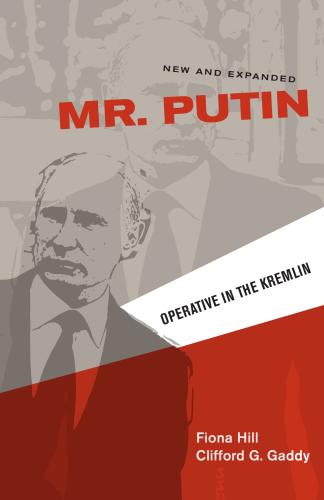
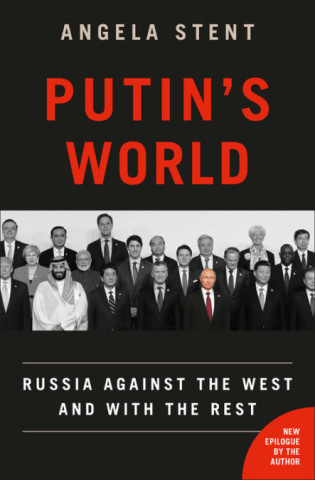
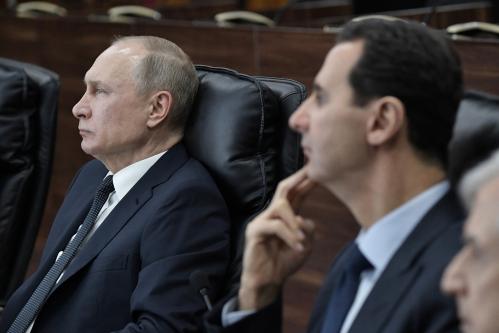
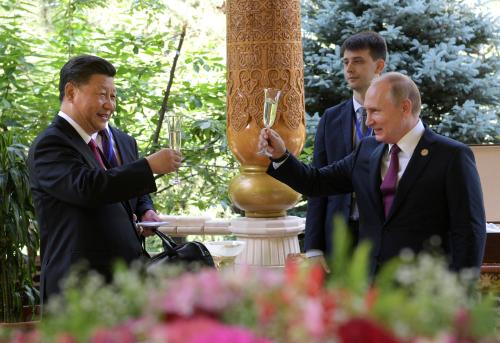

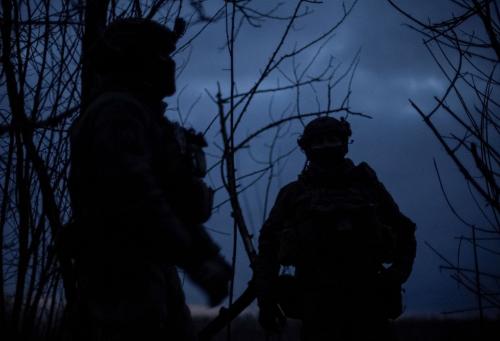
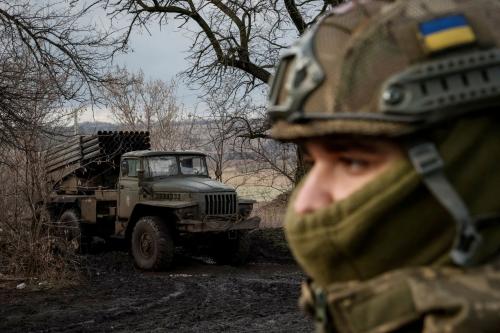
Commentary
Highlights: Navigating US-Russia relations in 2020 and beyond
January 9, 2020